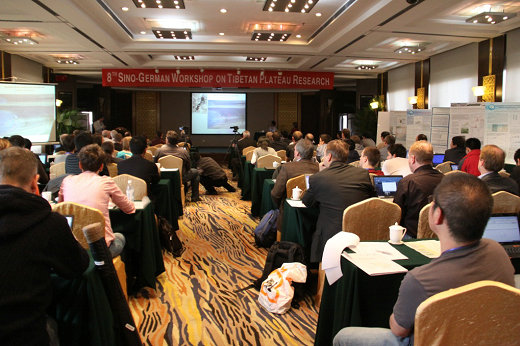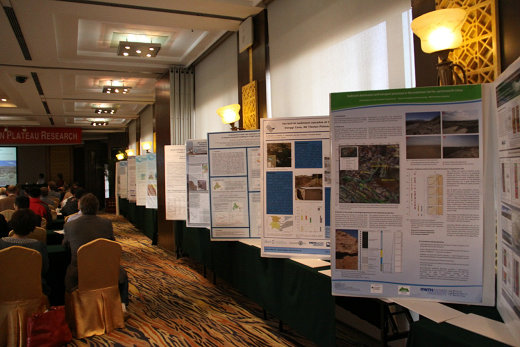| News |
| Latest news | |
| Int’l Cooperation activities | |
| Events & Announcement | |
| Recent Activities |
| Location: Home>News>Recent Activities |
| Sino-German cooperation on Tibetan Plateau Research evaluated at Eighth Sino-German Workshop |
November 15-18, 2012, the eighth Sino-German Workshop on Tibetan Plateau Research was held at Chengdu, Sichuan, China to evaluate the progress and achievements in Tibetan Plateau research jointly conducted by the Chinese and German scientists. It was acquainted during the workshop that during the quasi-decadal cooperation between scientists from both nations, scientific breakthroughs have been made in the comprehensively understanding of the glaciers' status on the Tibetan Plateau and its surroundings, integrated study of lake core paleoclimatology, and a preliminary model testing of tibetan Plateau uplift history with water stable isotopes. The unique interaction between the Plateau growth and Asian monsoon evolution was also briefly reviewed, with more work effort in that direction in the near future. Apart from scientific research, research programs have also been introduced during the workshop. Since the initiation of the Sino-German cooperation in 2004, more research programs have emerged and developed successfully. Among them, the Third Pole Environment (TPE) program promoted by the Chinese Academy of Sciences (CAS) and ITP/CAS has gained wider attention internationally, gathering a group of worldly acknowledged experts engaged in the program. German scientists headed by Prof. Volker Mosbrugger also succeeded in expanding their current research to central Asia under the program entitled Central Asia and Monsoon Evolution (CAME). “Tibetan Plateau: Formation – Climate – Ecosystems” (TiP) projects engaged in scientific research and young scientists training was also reported by Prof. Erwin Appel and Antje Schwalb, respectively, demonstrating significant achievements in the scientific understanding of Tibetan Plateau tectonics, environment and climate, as well as in the young scientists education and training.
Steering committee meeting was also held in the interim, with both sides agreeing to continue and further the cooperation in joint academic research, visiting scholars exchange projects, joint publication of peer-reviewed papers, data and research platform sharing, young scientists training and joint website construction, etc. During the three-day meeting, the workshop witnessed over 30 oral presentations and about 60 posters to exchange notes on academic achievements pertaining to climate changes and geodynamics at the geological time scales, environmental evolution since Last Glacial Maximum, and atmosphere-cryosphere-hydrosphere-biosphere interactions on the Tibetan Plateau.The workshop was evaluated and highly approved by attending officials from National Natural Science Foundation of China (NSFC) and Deutche Forschungsgemeinschaft (DFG), as well as by the TiP program pannel members.
|


